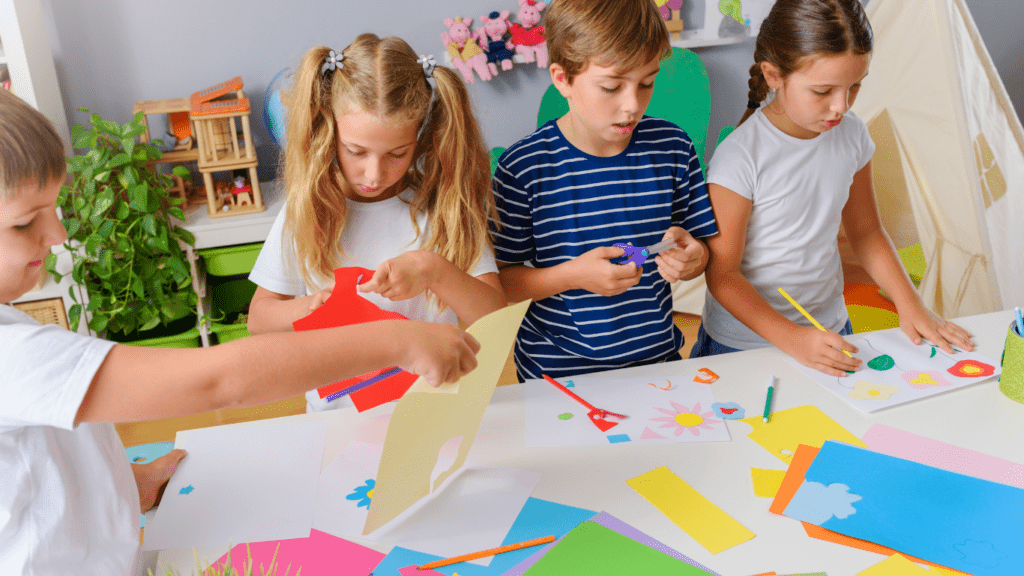Understanding Play with Purpose
Purposeful play combines enjoyment with opportunities for growth. By focusing on activities that engage both the mind and body, families create an environment where children learn naturally while having fun. These experiences encourage social, cognitive, and emotional development through interactive challenges and exploratory tasks.
Structured and unstructured play carry unique benefits. Structured activities, like board games or puzzles, teach problem-solving, teamwork, and discipline. Unstructured play, such as:
- imaginative role-playing
- free outdoor exploration
- nurtures creativity
- independence
- adaptability
Together, these types of play provide a well-rounded developmental experience.
Family involvement heightens the impact of purposeful play. When I actively participate in games or creative projects with my family, I notice stronger connections and mutual understanding develop. This shared time builds trust, improves communication, and reinforces family values.
Different age groups benefit from specific types of purposeful play. For toddlers, sensory activities like building blocks enhance motor skills. For preschoolers, storytelling and pretend play boost language and cognitive skills. Older children often thrive with sports or strategy-based games that challenge their critical thinking and teamwork abilities.
Benefits of Fun Family Activities

Engaging in enjoyable family activities supports growth in every aspect of life. These activities nurture relationships, physical health, and mental abilities, ensuring balanced development.
Building Stronger Family Bonds
Shared activities create consistent opportunities for connection. When families play together, they exchange laughter, positive reinforcement, and problem-solving experiences. For example, playing team-based board games encourages communication and trust among family members. These bonds reduce stress and foster emotional security, which benefits both children and parents.
Promoting Physical Health
Active family activities improve physical well-being. Outdoor games like soccer or hiking increase cardiovascular health and endurance. Research shows children involved in regular physical play are less prone to obesity and associated conditions. Activities involving movement also burn energy, improve balance, and develop strength, helping kids meet recommended daily activity levels.
Enhancing Cognitive Development
Play strengthens problem-solving, decision-making, and creative skills. Strategy games like chess or puzzles improve critical thinking, while activities like building blocks teach spatial awareness and planning. According to child development studies, engaging in diverse play scenarios enhances memory and adaptability, equipping kids for real-life challenges. Parents involved in these activities model constructive thinking, amplifying the cognitive benefits.
Types of Activities That Encourage Healthy Development
Engaging in diverse activities promotes growth across emotional, physical, and cognitive domains. Purposeful play helps families nurture essential skills while enjoying quality time together.
- Outdoor Adventures
Outdoor activities stimulate physical health and sensory exploration. Playing tag, hiking trails, or biking cultivates motor skills, endurance, and coordination. These experiences encourage problem-solving as kids navigate uneven terrain or adapt to environmental changes. Family gardening fosters teamwork and responsibility as everyone contributes to nurturing plants.
- Creative Arts and Crafts
Arts and crafts enhance creativity and fine motor development. Painting or clay modeling refines hand-eye coordination and self-expression. Group projects like building dioramas or designing cards teach planning and cooperation. Combining visual and tactile elements stimulates imagination and reinforces focus.
- Collaborative Games and Puzzles
Interactive games develop cognitive and social competencies. Solving jigsaw puzzles improves spatial reasoning and perseverance, while board games strengthen decision-making and teamwork. Word games expand vocabulary and critical thinking. Playing together helps families model communication skills and practice turn-taking effectively.
Tips for Incorporating Purposeful Play into Daily Life
Incorporating meaningful play into everyday routines strengthens family connections and fosters child development. Purposeful play doesn’t have to be complicated—simple, intentional efforts can make a lasting difference.
Setting Aside Quality Time
I prioritize uninterrupted time for family play, even during busy weekdays. Designating specific play periods, like after dinner or on weekends, ensures consistent engagement. Short sessions, such as 20–30 minutes of focused activity, allow us to bond without overwhelming schedules. For example, we might play a quick board game or enjoy an outdoor activity like a backyard scavenger hunt. I also disconnect from devices during these moments to create a distraction-free environment.
Choosing Age-Appropriate Activities
Balancing enjoyment with developmental needs, I select activities that match my child’s abilities. For toddlers, I incorporate sensory-based play, such as water tables or building with blocks, to boost fine motor skills. Preschoolers engage in storytelling or role-playing games to enhance creativity and social skills. For older kids, strategy games or team sports provide mental stimulation and teach collaboration. By tailoring activities to different ages, I ensure every child stays engaged while benefiting from the experience.





